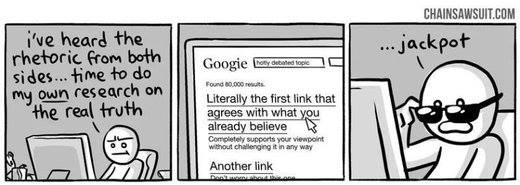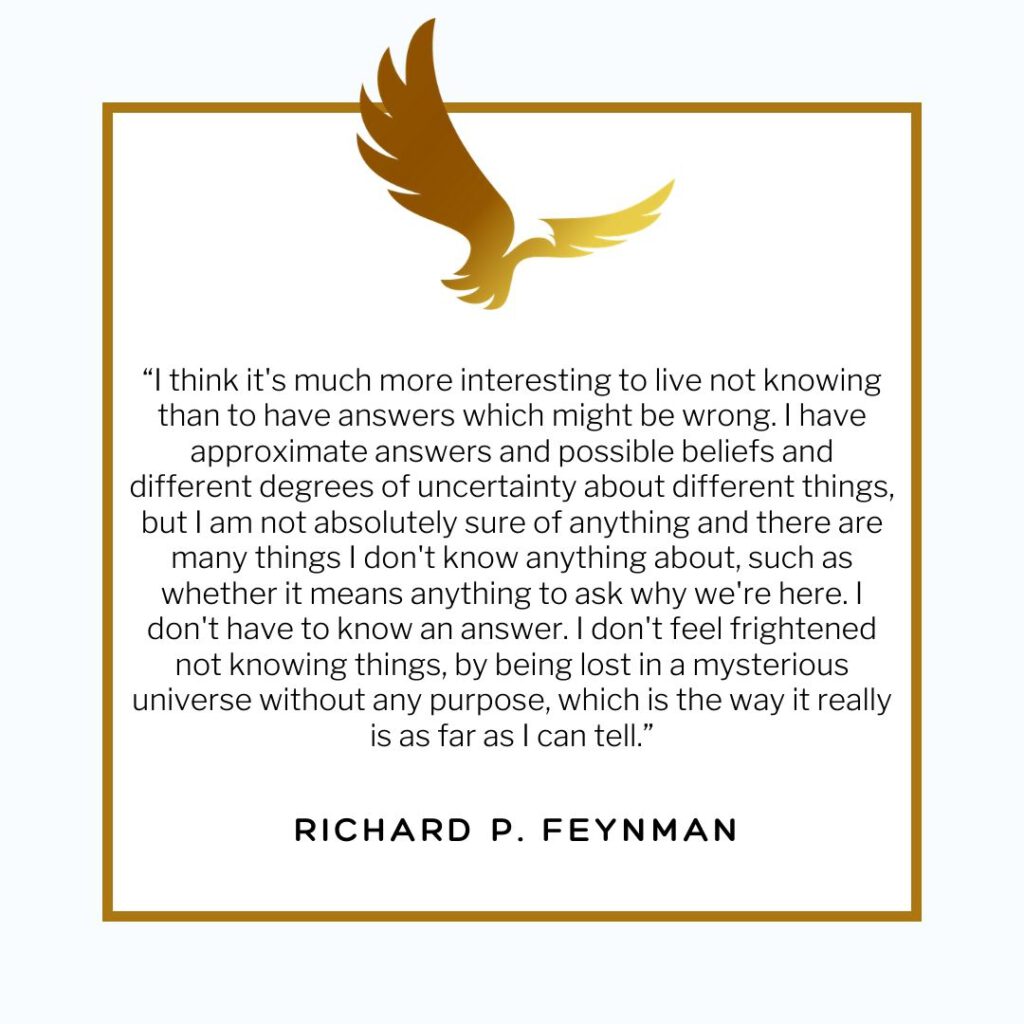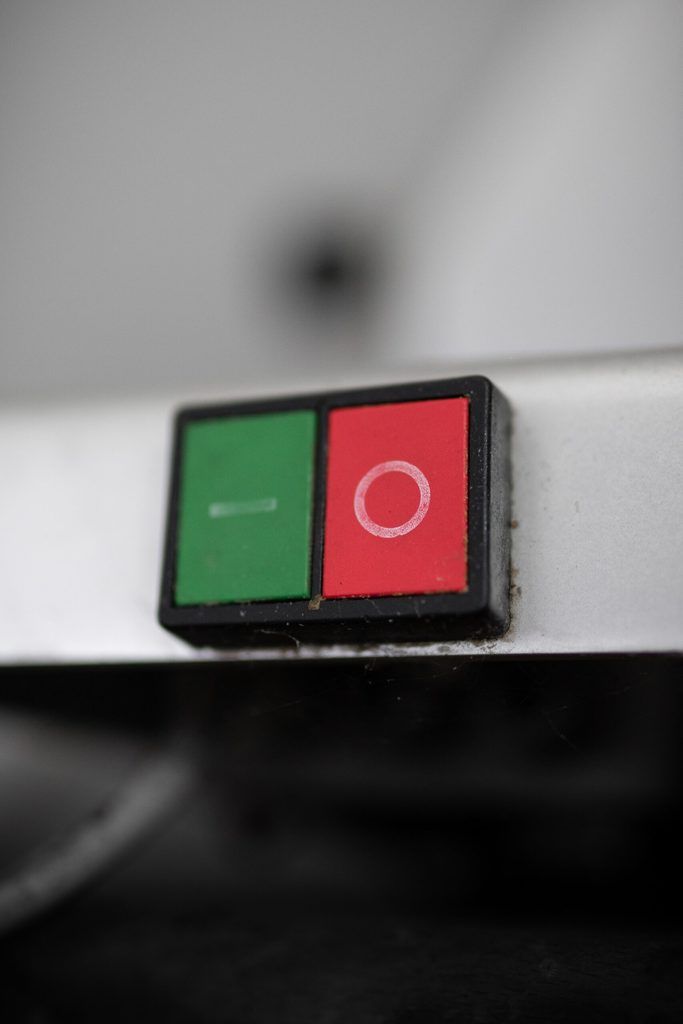The world has become even more fascinating place this year. We are in the midst of a global religious war. The stakes have never been so high. We are not combating each other for gain of territory or resources. We fight each other about a concept so vague, we do not even have a clear definition of it. But the fight is on nevertheless. This concept is called The Truth. And it is my truth against your truth… and it is getting pretty ugly.
When war is declared, truth is the first casualty
Arthur Ponsonby
“Do your own research”
If you feel you can no longer trust what you are being told, you have to find a new source of truth. These days, with lockdowns in place, finding new truth has never been easier. From your arm chair, you simply type a few keywords in your favorite search engine and the results start rolling in.
The problem is that the most popular search engines have built a thorough personal profile of you. It already knows what you are thinking. It already knows your values. It already knows your interests. And, it knows more about your weak spots than you do.
The search results that you get are not the same as what your neighbor will receive. For these search engines, we are all living in our own information bubble. It feeds us with links we will most likely click on. You find what you subconsciously already wanted to have confirmed. And by doing so, you reinforce your own bubble even more. People feel thoroughly protected and are ready to evangelize the unconverted.

The evidence for this is found on every social media platform. Fierce debates take place. Facts are being fired as ammunition in order to stifle the opposition. Unfortunately, the other side strikes back with facts as well.
Politicians, medical experts, leaders and scientists are found on either side, well dug-in to defend their position. Where does that leave you, other than being forced to pick a side?
A way forward
I am no exception to the rule. I am prone to the same things. The world is a very confusing place and I do not always have the time and energy to look further into the details. Moreover, I sometimes simply lack the motivation and interest to properly investigate certain matters. That said, when my core values are being triggered, I jump up immediately. I begin my internet research.
I have to admit that the meaning of the term research has eroded significantly since my graduation. Many times, I actually do not do any actual research, but instead learn about the opinions of researchers. And in a recursive cycle, sometimes these researches are simply airing the opinions of other researchers.
Being aware of that, I try to force myself to the follow a number of steps and principles to come to a better understanding.
It was never my intention to create a plan for myself for this. It is actually only in this year that I became consciously aware of how I over the years have come to my versions of truth. It is an elaborate process, but it rewards me with the richness of differing perspectives. Simultaneously, it impoverishes me with the lack of being absolutely confident that something is 100% true. In the current social polarization, that place is very lonely to be.

I am sharing my guidelines to have a dialogue with you as a reader. Not on the hot topics of today, but more on the process. Is there a way or method to, at least for yourself, come to a fair and valid conclusion?
Guidelines
1. Get out of the spiral of negativity
Before starting any research, it is important that you feel good and start with a happy clear mind. Especially during this crisis, it is easy to fall into negativity and generate depressive feelings and thoughts. Whether you think it is fully justified to have these feelings considering the situation, is irrelevant.
Have a good night’s rest. Practice sports. Go running. Personally, I prefer to swim in cold open water. During and after, my body is mainly concerned with managing my temperature. Once achieved, I feel fully refreshed and happy.
2. Acknowledge your bias
Human are wonderful and powerful beings. But we also have our weak spots. We are prejudiced, even if we tell ourselves we are not. That is fine. It is important that you are aware of your own bias.
Far more important is your thorough understanding that there is a high chance that your internet research is covertly restricted to your own biases. Advanced algorithms predict what you are most likely to click on, and will feed you with that information. And, your ego wants to see information that confirms it bias.

3. It is okay to change position (even multiple times)
To acknowledge your bias is already a victory over the Self. Changing position is even a greater accomplishment.
Unfortunately, politicians have all too often misused this by covering up for willfully not being truthful. As long as your starting point was based on your truth, and your new position is based on your new truth, then you can reposition with honor, not with shame.
4. Explain only to yourself
And that brings us directly to the next point: you do not have to qualify anything to anyone, except yourself. Everyone lives in their own truth, and similar to religions, your truth is as just as superior as theirs.
5. Triangulate
It Is the Mark of an Educated Mind to Entertain a Thought Without Accepting it
Great quote, not from Aristotle! (source)
Investor Ray Dalio uses triangulation to make decisions not only for his business, but also for his health. Thanks to this strategy, he avoided risky life altering surgeries and was able to continue happily ever after. His story is an inspiring read.
You can use triangulation. Find opposite views to your bias and carefully listen to the questions and critical views. Then find how proponents of your bias answer or rebut them. This way, you establish some sort of dialogue between two opposing opinions.
It is important to find believable people with whom you disagree. These could be experts in the field, but could also include friends or family who you can fully trust and still disagree with. How did they come to their opinion?
6. Follow your gut instinct
I find this the most difficult of all. First of all since this is a intrinsic feeling, it is hard to rationally explain it to yourself, let alone others.
Secondly, it is not always discernible what you feel. In stressful times, you might mistake your inner fears as your gut feel. I always question my feelings if they are not covert weaknesses.
There is a lot more to say about this, but that goes beyond the scope of this article. I have written more about this in my article Living in two worlds.
Step 7. Phenomenology
Try to pronounce this word! Phenomenology is is the philosophical study of the structures of experience and consciousness.
It is used in product marketing research to validate or discover actual behavior of consumers. In a consumer panel, when people are asked how they use a product, they will often subconsciously answer what the researchers want to hear.
By applying phenomenology, a researcher observes the behavior of the consumer by living with that family for a certain period, leading to refreshing insights in the actual perception and usage of the product.
In your internet research, also look for the personal stories and anecdotes that people tell. You can find those on forums and in the comment sections.

Step 8. Ponerology
I believe we all have a dark side in us. The famous Stanford Prison Experiment showed how that could get activated when we are put in position of power. Furthermore, a small percentage of people has psychopathic tendencies. The higher up the echelons of society, the larger percentage of psychopaths can be found.
The Theranos story is a fascinating example. The two founders committed massive fraud with a proposition that was too good to be true. It shows how honest, intelligent and hard working people get pulled into the false narrative and are duped into perpetuating the lies.
I think we should be aware that evil exists. Ponerology is the study of evil. Pathological liars do exist and their intentions differ greatly from the majority of the people.
When finding your truth, carefully discern who is providing you with the information. Has this person or organization been caught with illegitimate practices before? No fool proof way exist for detecting of evil, but it already greatly helps to be aware of its existence.
9. Tech savvy
The algorithms behind internet searches are firstly intended to increase advertisement income for the media platforms. It comes at a hidden cost to the user, whose data and meta data is being sold to advertisers.
There are many (technological) solutions to better protect one’s privacy online. It ranges from simply installing a browser plugin to going at lengths in spoofing your identity.
Nowadays, governments and commercial organizations can also pay the media platforms to make sure certain data is promoted or completely restricted. You will for sure miss out on that information.
You can however still be informed that information was being removed. For instance, many YouTube content creators have come forward this year by saying their video was removed, because they gave their opinion on a certain topic. At least you can infer that there is controversy on this item.
Conclusion
The list above is definitely not complete, but I hope you find it of some use. Please let me know your thoughts.
As said before, it does not help to get 100% clarity. It does to understand the complexity of this world much better. And by doing so, we depolarize society. I believe that is better to cope with the world’s challenges. But, in the end, that is just my opinion…

Photo by pawel szvmanski on Unsplash
Photo by Sharon McCutcheon on Unsplash
Photo by Justus Menke on Unsplash
